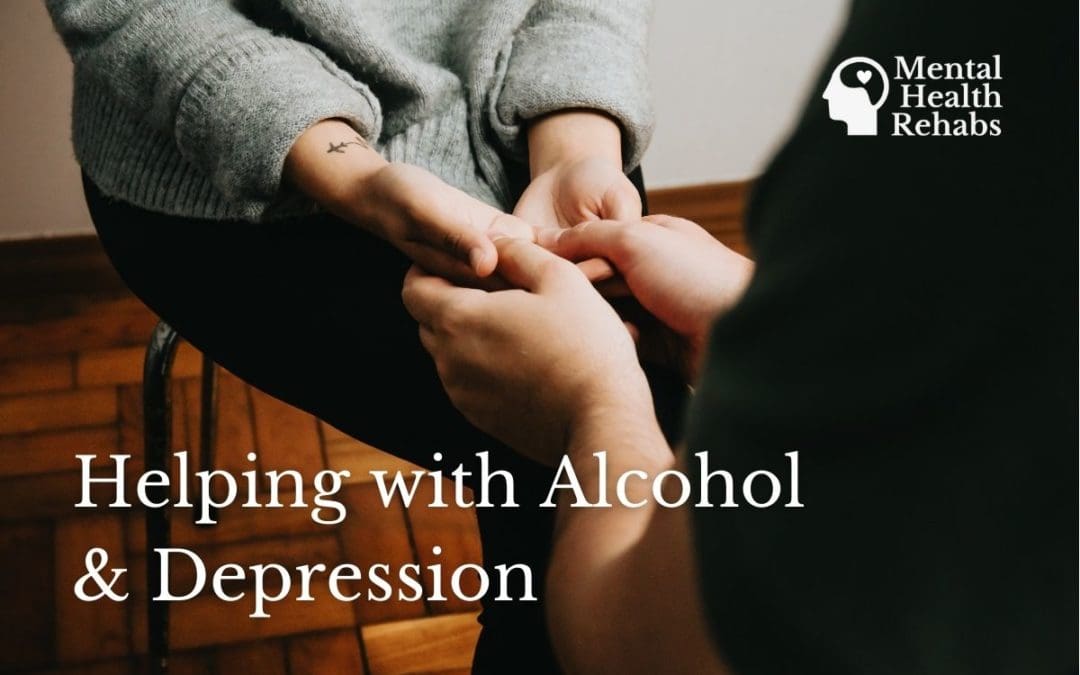Supporting a loved one dealing with addiction can be challenging, even if you’ve gone through it yourself. Depending on the stage of recovery that they’re in, a person undergoing treatment may be in a volatile emotional state. Those difficulties will be increased further still if that loved one is simultaneously battling a mental illness. One of the most commonly occurring ones is depression. If you’re unsure how to help someone with drug addiction and depression, keep reading to gain a better understanding of what they’re going through as well as the ways you can help them.
Depression and Addiction: How Are They Related?
Depression is a mood disorder estimated to affect nearly one-fifth of the world’s population, making it one of the most common psychiatric disorders. Symptoms can range in severity, causing afflicted individuals to feel inexplicably anxious, lethargic, or hopeless. This can make it difficult fulfilling personal or professional tasks and is why depression can be so debilitating. Other side effects that can impair a person’s ability to function in everyday life include:
- Decreased energy
- Difficulty sleeping
- Difficulty concentrating
- Reduced memory
- Restlessness
- Appetite changes and unexpected weight gain or weight lose
- Digestive problems
- Headaches
So what does this have to do with drug use or addiction? Research found that 43% of those being treated for drug addiction also have a mental health disorder, most often anxiety or depression. This prevalence can be attributed to a few main reasons.
Individuals who suffer from mental illness are much more likely to experience a substance use disorder than those who don’t, especially if it’s undiagnosed. According to SAMHSA’s 2019 report, 38.8% of individuals with a mental illness used illicit drugs compared to 16.6% of adults with no mental illness.
These individuals often turn to drugs in order to cope with those resulting negative feelings. Unfortunately, this often worsens the effects of depression, creating a vicious cycle of emotion-driven substance abuse and can quickly lead to addiction.
Additionally, the pathways that result in depression in the first place can also make drug users more susceptible to getting hooked. Most illicit drugs that result in any sort of “high” interfere with the brain’s dopamine and serotonin, neurochemicals that deal with our reward system and feelings of pleasure. Many mental illnesses (or at least, their symptoms) can be attributed to either a shortage or a surplus of those chemicals, which drugs make even worse. As such, prolonged drug use can also cause mental illness in individuals who had no imbalances prior.
How You Can Help
A common symptom of both depression and addiction is a sense of isolation. Despite growing efforts from experts in these respective communities, there is still a lingering stigma against these conditions which can make them hesitant to reach out for help or talk to others about their issues. While you may not be able to cure their mental illness or their addiction yourself, being a supportive presence can help start–and keep–them on the path to recovery.
- Hold them accountable
A widely recommended practice in addiction recovery is re-introducing stability and routine into one’s life. However, mental illness can make it difficult to find the motivation to stick to a good habit. Regularly checking up on your loved one via a phone call or a text can help serve as an external source of motivation. Better yet, get involved yourself. Go on walks, journal, or meditate together to minimize the likelihood that they flake on doing something beneficial for themselves.
- Be patient
Your loved one is going through a lot right now. Depending on the severity of their addiction and the stage of their recovery, they may be experiencing intense physical and psychological difficulties. You might find them to be extra irritable, impulsive, or unfocused. Understand that they’re not themselves and give them grace as restoring themselves will take time.
- Stay away from old haunts
It makes sense to keep a recovering person away from the substance they’re addicted to but what may be less intuitive is also keeping them away from certain people and places. Memory has a strong relationship with addiction. Being in a place where they used to use drugs or around people who they did drugs with, can be triggering. Places that have bad memories and are stressful may also set off their stress response and have them itching for their old go-to drug.
- Encourage them to get treatment
This circumstance where both drug use and mental illness can exacerbate the other is what’s known as a co-occurring disorder and can be particularly difficult to treat. As such, there are specialty addiction treatment programs known as dual diagnosis treatment that are specifically designed to address the ways in which mental illness and drug use affect one another. Going to a therapist or addiction treatment center independently may help the situation but is unlikely to address the joint root cause of their drug use.


Need inpatient rehab and mental health